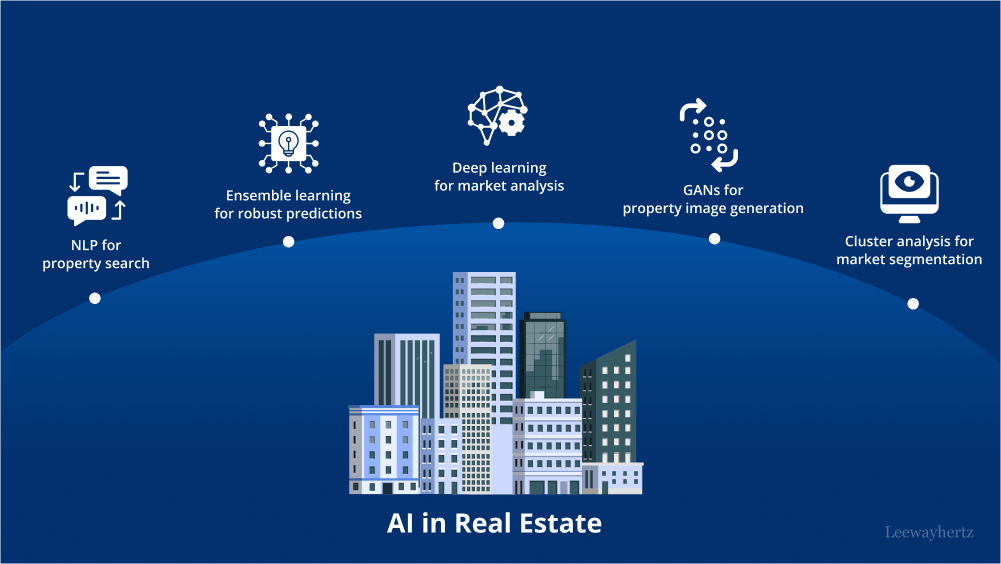Artificial Intelligence (AI) is revolutionizing the real estate industry by streamlining operations, enhancing decision-making, and transforming the way properties are bought, sold, and managed. As AI continues to evolve, real estate experts are weighing in on its impact and potential.
How Is AI Changing Real Estate?
AI in real estate leverages data-driven algorithms and machine learning to automate tasks, forecast market trends, and personalize experiences for buyers, sellers, and investors. It is being adopted across residential, commercial, and industrial sectors.
Key Expert Insights on AI in Real Estate
Smarter Property Search
Experts note that AI-powered search engines are improving how buyers find properties. By analyzing preferences, behavior, and market data, platforms can recommend highly relevant listings—making home searches faster and more personalized.
Predictive Analytics for Investment
AI models can forecast property values, rental income, and neighborhood growth by analyzing historical data and market indicators. Experts believe this allows investors to make more informed and strategic decisions.
Automated Valuations and Appraisals
AI tools are being used to perform instant property valuations by analyzing comparable sales, location, market conditions, and even satellite imagery. This increases speed and accuracy in pricing.
Virtual Assistants and Chatbots
Real estate agents are increasingly supported by AI chatbots that handle customer inquiries, schedule tours, and provide property details—allowing professionals to focus on more complex tasks.
Risk Assessment and Fraud Detection
AI is also improving security by analyzing transaction patterns to detect fraud and assess risks in real estate deals, especially in high-value commercial transactions.
Challenges Experts Warn About
While the benefits are substantial, experts caution against over-reliance on AI:
- Data Privacy: Handling large datasets raises concerns about user data security and misuse.
- Bias in Algorithms: Inaccurate or biased data can lead to flawed decisions and discrimination.
- Loss of Human Touch: Real estate is still a relationship-driven industry; AI should support, not replace, human interaction.
Conclusion
Experts agree that AI is a powerful tool transforming the real estate sector—from smarter searches to more strategic investments. However, thoughtful implementation that respects ethical standards, data integrity, and human relationships is key. As AI continues to evolve, staying informed and adaptable will help professionals lead confidently in the new age of real estate.







Leave feedback about this